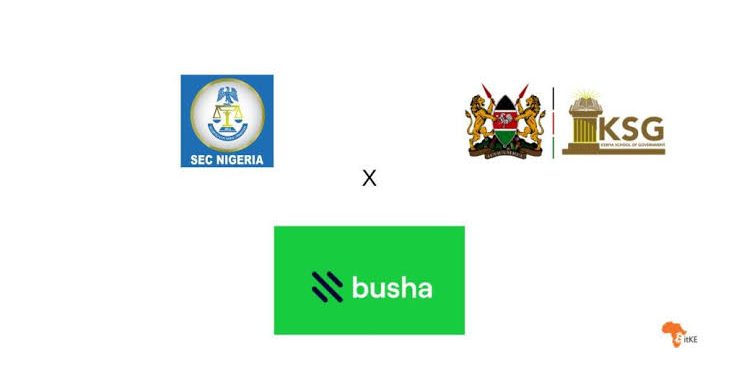One year after Nigeria issued its first provisional licences for cryptocurrency startups, the country’s Securities and Exchange Commission (SEC), working through its Nigerian Capital Market Institute (NCMI), has partnered with the Kenya School of Government (KSG) and Nigerian crypto exchange Busha to roll out an executive course on digital assets.
The programme, titled Digital Assets Innovation, Industry, Regulation and Compliance (DAIIRC), will be developed and facilitated by Cambridge Enterprise, the innovation arm of the University of Cambridge. It is designed to train financial sector leaders, regulators, policymakers, legal professionals, and innovators on the opportunities and risks of digital assets, with a focus on how they can expand financial access across Africa.
According to the SEC, the collaboration still in progress but not yet finalised—signals a major step toward institutional adoption of crypto in Africa. The six-week hybrid programme will launch on September 30 and will cost $1,500 per participant, with institutions required to sponsor their executives.
Facilitators will include a blend of global and African digital asset experts, such as Simon Callaghan, former director of the Cambridge Digital Assets Programme; Dr Dee Allen, associate professor at the University of the Bahamas; Dr Patrick Conteh, CEO of the Africa Fintech Network; Loretta Joseph, advisor to Jamaica’s Financial Services Commission on virtual asset regulation; Dr Tanya McCartney, CEO of GEM Advisory, a US-based compliance firm; and Olaoluwa Samuel-Biyi, co-founder of Busha.
SEC Director General Emomotimi Agama described the partnership with Cambridge and Busha as a way to give market leaders the tools to approach digital assets “from a position of confidence, not caution.”
The training programme comes against the backdrop of Nigeria’s cautious approach to regulating cryptocurrencies. In August 2024, the SEC issued provisional licences to Quidax and Busha under a sandbox framework that was expected to expand quickly. The plan was for the startups to graduate to full licences within a year while more operators joined the sandbox.
But progress has been slower. In April, the SEC paused new approvals, citing due diligence challenges. This left many applicants in limbo and placed additional pressure on Busha and Quidax to demonstrate what a regulated crypto business should look like.
For Busha, regulation has meant scaling compliance processes significantly. About 30% of its operations are now tied to regulatory requirements, up from 10% before its licence. These include real-time reporting to the SEC through APIs, stricter Know Your Customer (KYC) checks, anti-money laundering (AML) compliance, proof of reserves, and advanced transaction monitoring using global security tools like Chainalysis and Fireblocks.
Despite the burden, Busha says regulation has helped build credibility. More corporations are now openly holding crypto in their treasury or using digital assets for payments. However, banks remain hesitant, largely due to the Central Bank of Nigeria’s (CBN) historic hostility toward crypto. While digital assets now have legal recognition, account holders still risk account freezes if they reference crypto transactions, a contradiction that highlights regulatory uncertainty.
The SEC is still refining its licensing regime. Both Busha and Quidax remain on provisional status, with full licences expected once the regulator finalises internal processes such as asset listing criteria and liability rules. Industry sources suggest another batch of provisional licences could be issued before the end of 2025, reopening the sandbox to new startups.
For regulators, the partnership with Cambridge and Kenya represents a turning point. After a year of stop-start regulation, the move shows intent to build capacity within financial institutions, equip policymakers with practical knowledge, and turn a volatile industry into a structured market.
If the new training succeeds, it could accelerate the transition from experimental licensing to broader regulatory clarity , paving the way for more inclusive financial innovation across Africa.










